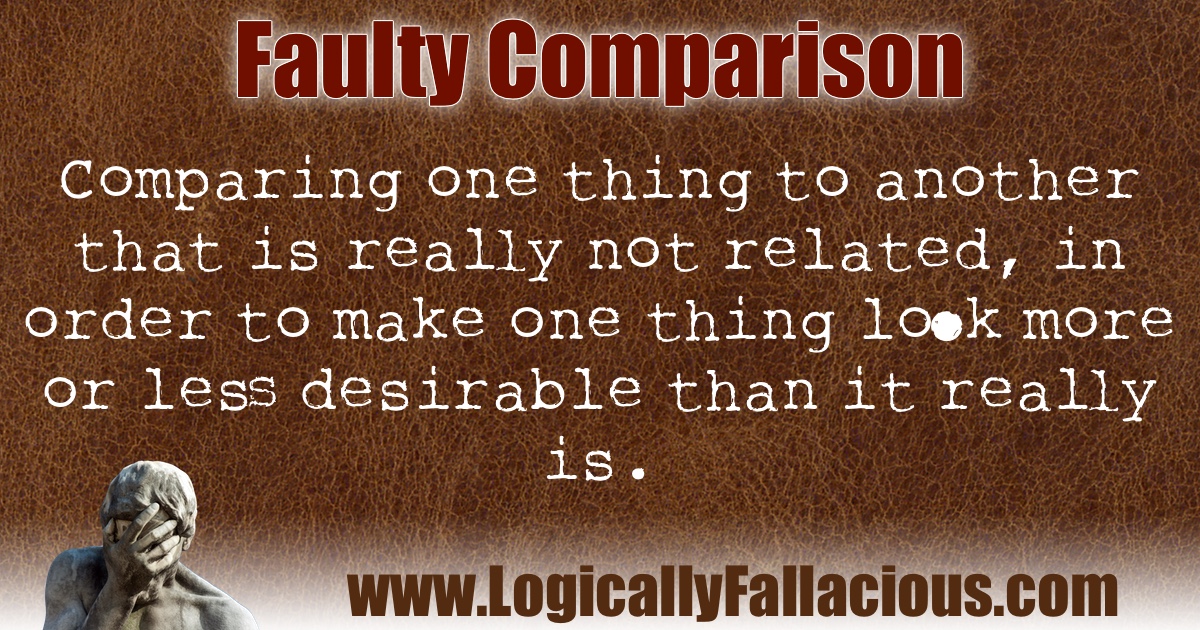(also known as: bad comparison, false comparison, inconsistent comparison [form of])
Description: Comparing one thing to another that is really not related, in order to make one thing look more or less desirable than it really is.
Logical Form:
X is different from Y in way Z.
It is unreasonable to compare X to Y in way Z.
Therefore, X is seen as more/less favorable.
Example #1:
Broccoli has significantly less fat than the leading candy bar!
Explanation: While both broccoli and candy bars can be considered snacks, comparing the two in terms of fat content and ignoring the significant difference in taste, leads to the false comparison.
Example #2:
Religion may have been wrong about a few things, but science has been wrong about many more things!
Explanation: We are comparing a method of knowledge (science) to a system of belief (faith), which is not known for revising itself based on new evidence. Even when it does, the “wrongs” are blamed on human interpretation. Science is all about improving ideas to get closer to the truth, and, in some cases, completely throwing out theories that have been proven wrong. Furthermore, the claims of religion are virtually all unfalsifiable, thus cannot be proven wrong. Therefore, comparing religion and science on the basis of falsifiability is a faulty comparison.
Exception: One can argue what exactly is “really not related”.
Variation: An inconsistent comparison is when something is compared to multiple things in different ways, giving the impression that what is being compared is far better or worse than it actually is. For example,
Serial killer Ted Bundy wasn’t so bad. He didn’t kill children like Luis Garavito, he didn’t kill nearly as many people as Hitler, and he is much kinder than Satan.
Tip: Comparisons of any kind almost always are flawed. Think carefully before you accept any kind of comparison as evidence.
